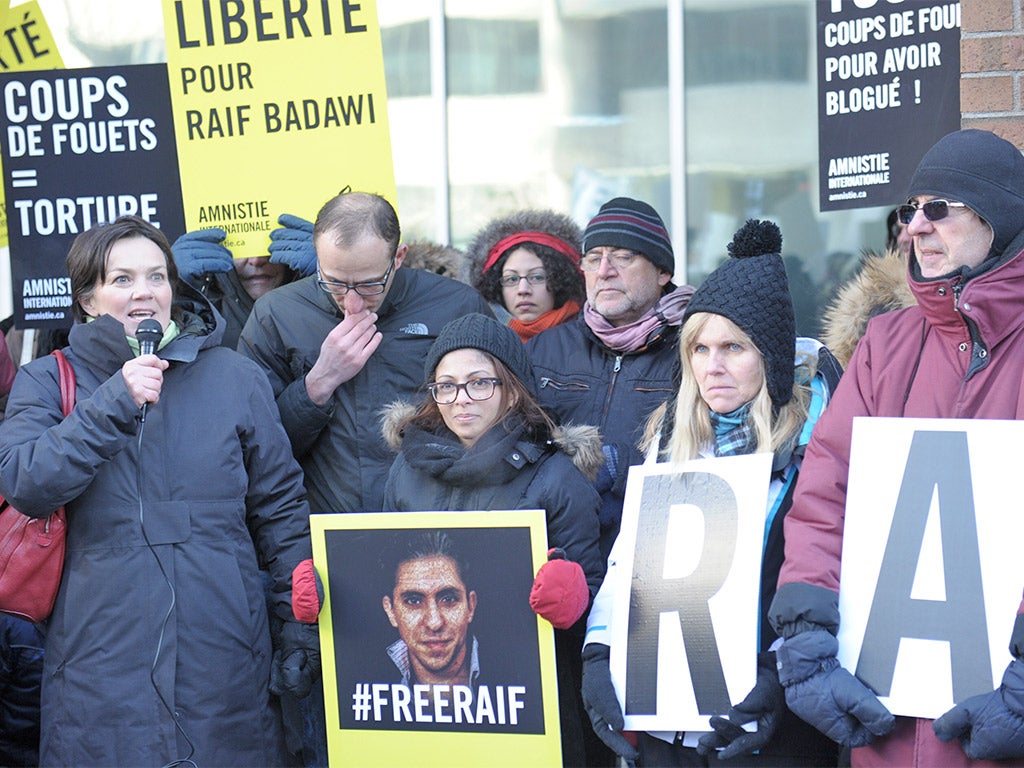Saudi Arabia bans flogging as form of punishment
Other forms of capital and corporal punishment – including beheading for murder and amputations for theft – remain

Your support helps us to tell the story
From reproductive rights to climate change to Big Tech, The Independent is on the ground when the story is developing. Whether it's investigating the financials of Elon Musk's pro-Trump PAC or producing our latest documentary, 'The A Word', which shines a light on the American women fighting for reproductive rights, we know how important it is to parse out the facts from the messaging.
At such a critical moment in US history, we need reporters on the ground. Your donation allows us to keep sending journalists to speak to both sides of the story.
The Independent is trusted by Americans across the entire political spectrum. And unlike many other quality news outlets, we choose not to lock Americans out of our reporting and analysis with paywalls. We believe quality journalism should be available to everyone, paid for by those who can afford it.
Your support makes all the difference.Saudi Arabia is to abolish flogging as a form of criminal punishment, according to legal documents.
The state-sanctioned lashings will be replaced by prison sentences or fines, a directive from the Gulf kingdom’s Supreme Court says.
“The decision is an extension of the human rights reforms introduced under the direction of King Salman … [and will] bring the kingdom into line with international human rights norms,” the document is reported to state.
Other forms of capital and corporal punishment – including beheading for murder and amputations for theft – will remain in use.
While analysts will see the new decision as a further attempt by de facto ruler Crown Prince Mohammed bin Salman to present the country as modernising, critics have already pointed out that the kingdom’s human rights record remains among the worst in the world.
Anti-government dissent is banned, and those who dare to criticise the country’s rulers are routinely subject to arbitrary arrest. Other freedom of expression is severely curtailed.
In 2019, some 184 people were executed – a record number for the kingdom in a year when such government-approved killings were in decline almost everywhere else in the world.
Pertinently, perhaps, shortly before the flogging decision was made public on Friday, the most prominent Saudi human rights campaigner died in jail after a stroke which fellow activists say was due to medical neglect.
“This is a welcome change but it should have happened years ago,” said Adam Coogle, deputy director of the Middle East and North Africa Division at Human Rights Watch. “There’s nothing now standing in the way of Saudi Arabia reforming its unfair judicial system.”
Flogging has been a sore point for Saudi officials since 2015 when worldwide attention was drawn to the fact blogger and government critic Raif Badawi had been sentenced to 1,000 lashes following his conviction on charges of cybercrime and insulting Islam.
The global revulsion led to the punishment being withdrawn.
Join our commenting forum
Join thought-provoking conversations, follow other Independent readers and see their replies
Comments